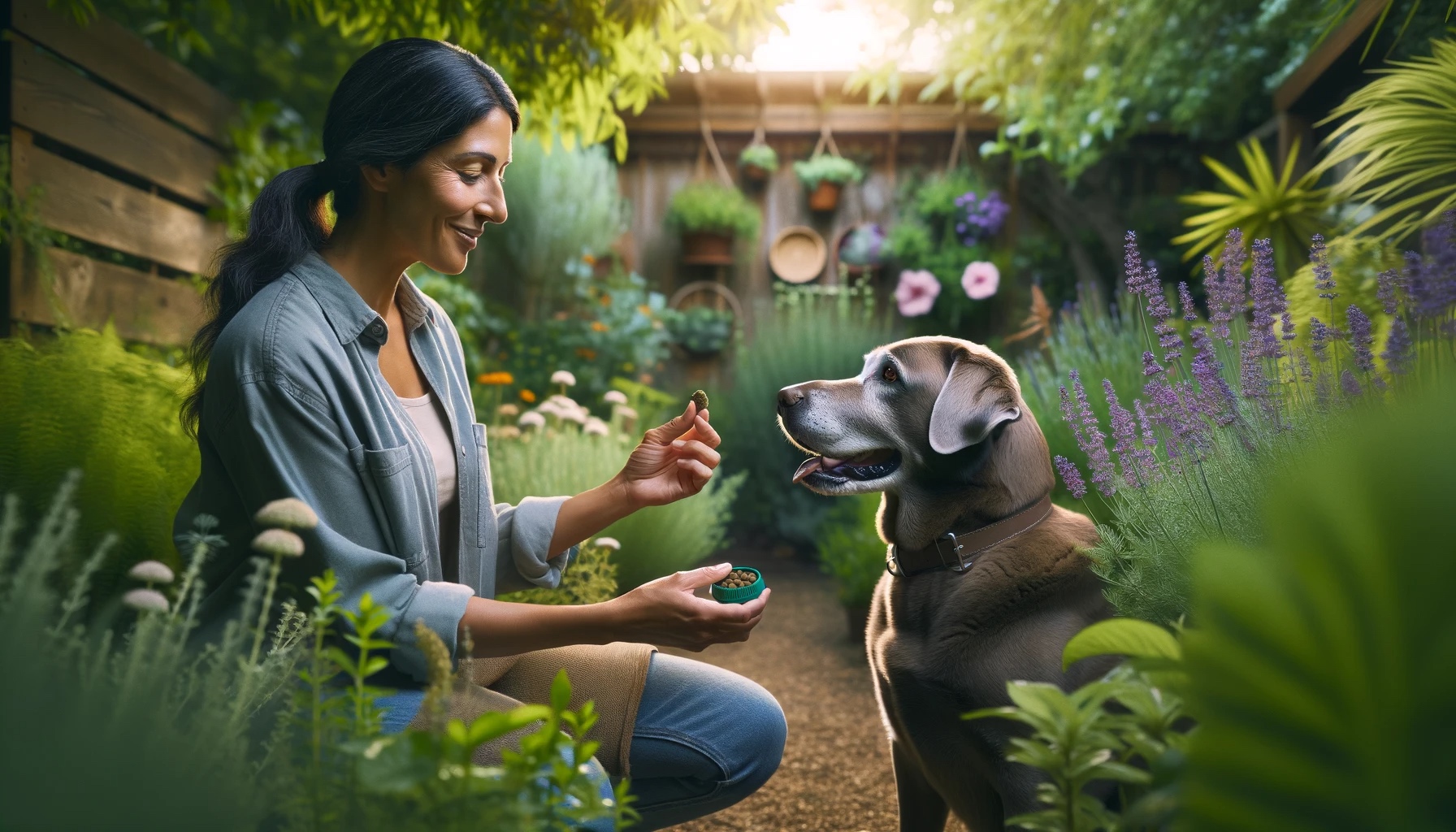Home>Health & Wellness>Behavior & Cognitive Care>Behavioral Changes>Understanding and Managing Old Dog Aggression: Natural Remedies and Strategies


Behavioral Changes
Understanding and Managing Old Dog Aggression: Natural Remedies and Strategies
Modified: November 27, 2023
By addressing the root causes of aggression, you can help ensure that your older dog's golden years are filled with peace and comfort.
(Many of the links in this article redirect to a specific reviewed product. Your purchase of these products through affiliate links helps to generate commission for Pawsomeoldies.com, at no extra cost. Learn more)
Have you noticed a change in your older dog’s demeanor, perhaps a surprising display of aggression? Old dog aggression is a complex issue, often rooted in underlying health problems or cognitive changes. Understanding the causes and exploring natural remedies can help restore peace and comfort to your senior companion.
The Root Causes of Aggression in Older Dogs
Aggression in senior dogs can stem from various factors:
- Physical Discomfort: Pain from arthritis, dental issues, or other health problems can lead to irritability and aggression.
- Cognitive Decline: Like humans, dogs can experience cognitive dysfunction, leading to confusion and aggression.
- Sensory Impairment: Diminished sight or hearing can make a dog more easily startled and defensive.
Recognizing the Signs
Key indicators of aggression in older dogs include:
- Growling or snapping during petting or grooming
- Sudden guarding behavior over food or toys
- Uncharacteristic snapping or biting
The First Step: Veterinary Check-Up
Before exploring natural remedies, it’s crucial to consult a veterinarian. They can determine if the aggression is due to a medical condition that requires specific treatment.
Diet: The Foundation of Health
A nutritious diet plays a vital role in managing aggression:
- High-Quality Food: Ensure your dog’s diet is rich in essential nutrients.
- Omega-3 Fatty Acids: Supplements like fish oil can support brain health and reduce inflammation.
The Power of Exercise
Regular, gentle exercise can significantly improve your dog’s mood and reduce aggression:
- Short, leisurely walks
- Low-impact play that doesn’t strain joints
Natural Remedies for Calming
Several natural remedies can help soothe an aggressive old dog:
- Herbs: Chamomile and lemon balm are known for their calming effects.
- Essential Oils: A blend of lavender, chamomile, and sweet marjoram can be soothing when applied correctly.
The Role of Supplements
Certain supplements can aid in managing aggression:
- Vitamin B6: Supports serotonin production, a mood regulator.
- GABA: An amino acid that helps control fear and anxiety.
Training and Behavior Modification
Working with a professional animal behaviorist can be invaluable in addressing aggression:
- Positive reinforcement techniques
- Consistency in commands and routines
Creating a Safe Environment
Modify your home environment to reduce stressors that might trigger aggression:
- Quiet, comfortable resting areas
- Avoiding situations that may startle or confuse your dog
The Importance of Routine
Maintaining a consistent daily routine can provide a sense of security and reduce anxiety in older dogs.
Understanding and Patience
Recognize that aggression in an old dog often stems from fear or confusion. Patience and empathy are key.
When to Seek Professional Help
If natural remedies and adjustments in care don’t help, it may be time to consult a veterinary behaviorist for more specialized intervention.
A Holistic Approach
Combining diet, exercise, natural remedies, and behavioral strategies can create a comprehensive plan to manage old dog aggression effectively.
Nurturing Your Aging Companion
Remember, your senior dog relies on your understanding and care. By addressing the root causes of aggression and employing natural remedies, you can help ensure their golden years are filled with peace and comfort.
